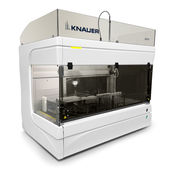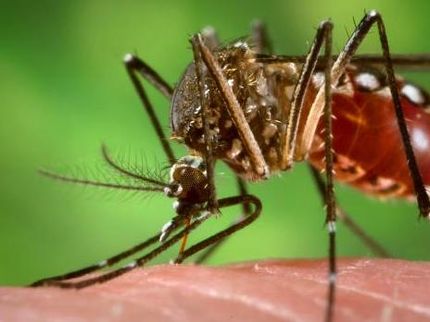Kansas State University professor's USDA research shows mad cow disease also caused by genetic mutation
New findings about the causes of mad cow disease show that sometimes it may be genetic. "We now know it's also in the genes of cattle," said Juergen A. Richt, Regents Distinguished Professor of Diagnostic medicine and Pathobiology at Kansas State University's College of Veterinary Medicine.
Until several years ago, Richt said, it was thought that the cattle prion disease bovine spongiform encephalopathy - also called BSE or mad cow disease - was a foodborne disease. But his team's new findings suggest that mad cow disease also is caused by a genetic mutation within a gene called Prion Protein Gene. Prion proteins are proteins expressed abundantly in the brain and immune cells of mammals.
The research shows, for the first time, that a 10-year-old cow from Alabama with an atypical form of bovine spongiform encephalopathy had the same type of prion protein gene mutation as found in human patients with the genetic form of Creutzfeldt-Jakob disease, also called genetic CJD for short. Besides having a genetic origin, other human forms of prion diseases can be sporadic, as in sporadic CJD, as well as foodborne. That is, they are contracted when people eat products contaminated with mad cow disease. This form of Creutzfeldt-Jakob disease is called variant CJD.
"Our findings that there is a genetic component to BSE are significant because they tell you we can have this disease everywhere in the world, even in so-called BSE-free countries," Richt said.
An article by Richt and colleague Mark Hall of the National Veterinary Services Laboratories in Ames, Iowa, was published in PLoS Pathogens. Richt conducted the research while working at the National Animal Disease Center operated in Ames, Iowa, by the U.S. Department of Agriculture's Agricultural Research Service.
Richt said the upside of knowing that mad cow disease has a genetic component is that it offers ways of stamping out the disease through selective breeding and culling of genetically affected animals. Therefore, Richt and his colleagues developed high throughput assays to offer the possibility for genetic surveillance of cattle for this rare pathogenic mutation.
"Genetic BSE we can combat," Richt said. "We have submitted a patent for a test system that can assess all bulls and cows before they're bred to see whether they have this mutation."
Most read news
Topics
Organizations
Other news from the department science
These products might interest you

Kjel- / Dist Line by Büchi
Kjel- and Dist Line - steam distillation and Kjeldahl applications
Maximum accuracy and performance for your steam distillation and Kjeldahl applications

AZURA Purifier + LH 2.1 by KNAUER
Preparative Liquid Chromatography - New platform for more throughput
Save time and improve reproducibility during purification

Get the analytics and lab tech industry in your inbox
By submitting this form you agree that LUMITOS AG will send you the newsletter(s) selected above by email. Your data will not be passed on to third parties. Your data will be stored and processed in accordance with our data protection regulations. LUMITOS may contact you by email for the purpose of advertising or market and opinion surveys. You can revoke your consent at any time without giving reasons to LUMITOS AG, Ernst-Augustin-Str. 2, 12489 Berlin, Germany or by e-mail at revoke@lumitos.com with effect for the future. In addition, each email contains a link to unsubscribe from the corresponding newsletter.























































